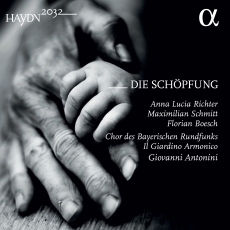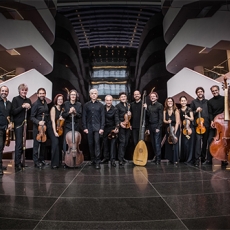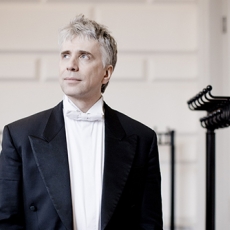Il Giardino Armonico & Giovanni Antonini - Haydn: Die Schöpfung - Early Music Review
No one following Giovanni Antonini’s challenging on-going cycle of Haydn’s symphonies is likely to be surprised by this questioning, deeply moving and exhilarating performance of The Creation, recorded live in Munich in May 2019. At the outset, the Representation of Chaos is notable not only for its evocation of profound, unfathomable mystery – initially near inaudible – but on a musical level the ear is conscious of near-perfect orchestral balance. Grinding lower strings remind of an unruly cosmos in dire need of the sense of order finally achieved by the chorus’s monumental outburst ‘es ward Licht’ (there was light).
The whole of this vividly theatrical opening sequence sets the scene for what follows, a performance in which an outstanding solo trio, fully committed choral forces and magnificent orchestral playing coalesce to produce an utterly compelling experience. The ever-shifting focus is already apparent in Uriel’s ‘Nun schwanden’, a description of the order achieved on the first day, handled by Antonini with a delicious lightness of touch. We have moved in a trice to the world of Die Zauberflöte (which will return even more strikingly in Uriel’s ‘Aus Rosenwolken’ [In rosy mantle]) at the start of Part 3). Like all Uriel’s music, it is sung with real musical insight and keen attention to text by Maximillian Schmitt, a light lyric tenor with a fast vibrato that can occasionally be a little disconcerting. The descriptive narrative of the division of earth into land and sea, of winds, of storms, or rain, snow and ‘dreary wasteful hail’ falls largely to Raphael, the outstanding baritone Florian Boesch. As befits one of today’s leading Lieder singers, Boesch proves not only to be an outstanding storyteller but equally the possessor of a voice of real intrinsic beauty and variegated colour. To hear that at its most ravishing, it is necessary to turn only as far as the final lines of the aria ‘Rollen in schäumenden Wellen’ (Rolling in foaming billows), where Boesch’s exquisite mezza voce evokes the ‘soft purling’ of ‘limpid brooks’ in one of many magical moments. At the end of the wonderful mimetic accompanied recitative ‘Gleich öffnet’, his outstanding technique becomes merged with humour, with a firm and totally secure low G# as the worm traces its ‘sinuous way’, a moment that brings a barely registered but none the less audible smile from the Munich audience.
An equally beguiling touch of subtle vocal humour, this time tinged with irony, comes in Part 3 as Eve promises her Adam that ‘his will is law to her’. Anna Lucia Richter is another of the glories of the performance, a soprano possessed not only of a voice that soars with glorious freedom and vernal freshness but owns to a complete technique in which embellishments, including a finely articulated trill, are perfectly turned and judged. Gabriel’s ‘Auf starken Fittige’ (On mighty pens’) is a joyously confident experience in which the tenderness of the second part of the aria is expressed with dewy-eyed sweetness, the singer happy to indulge the conductor’s playful bending of tempo. Like others of Antonini’s indulgences, it’s a dangerous moment, but it works. Yet moments later Antonini has captured all the dignified nobility of Raphael’s quotation of God’s words, ‘Be fruitful all, and multiply’, the momentous command underscored by imperious divided string basses.
It is that kind of all-encompassing performance. I have no idea whether Antonini is exercised by the naivety some perceive in The Creation. If he is, he doesn’t for one moment betray any such concern. It is his inspiring direction, his multi-faceted conception of a work that runs a gamut from ultimate grandeur to near child-like wonder, that has produced this spellbinding, life-enhancing testament.


